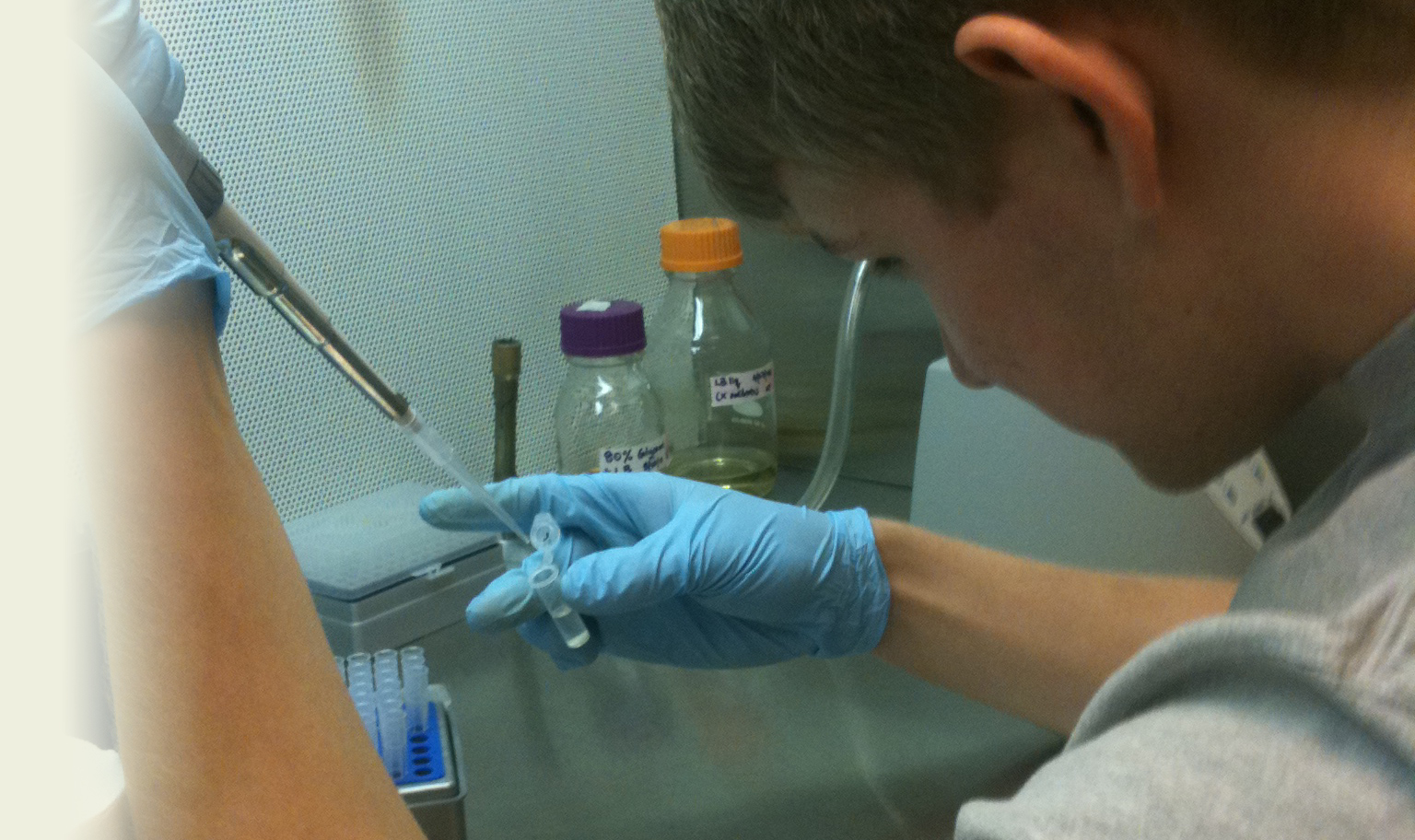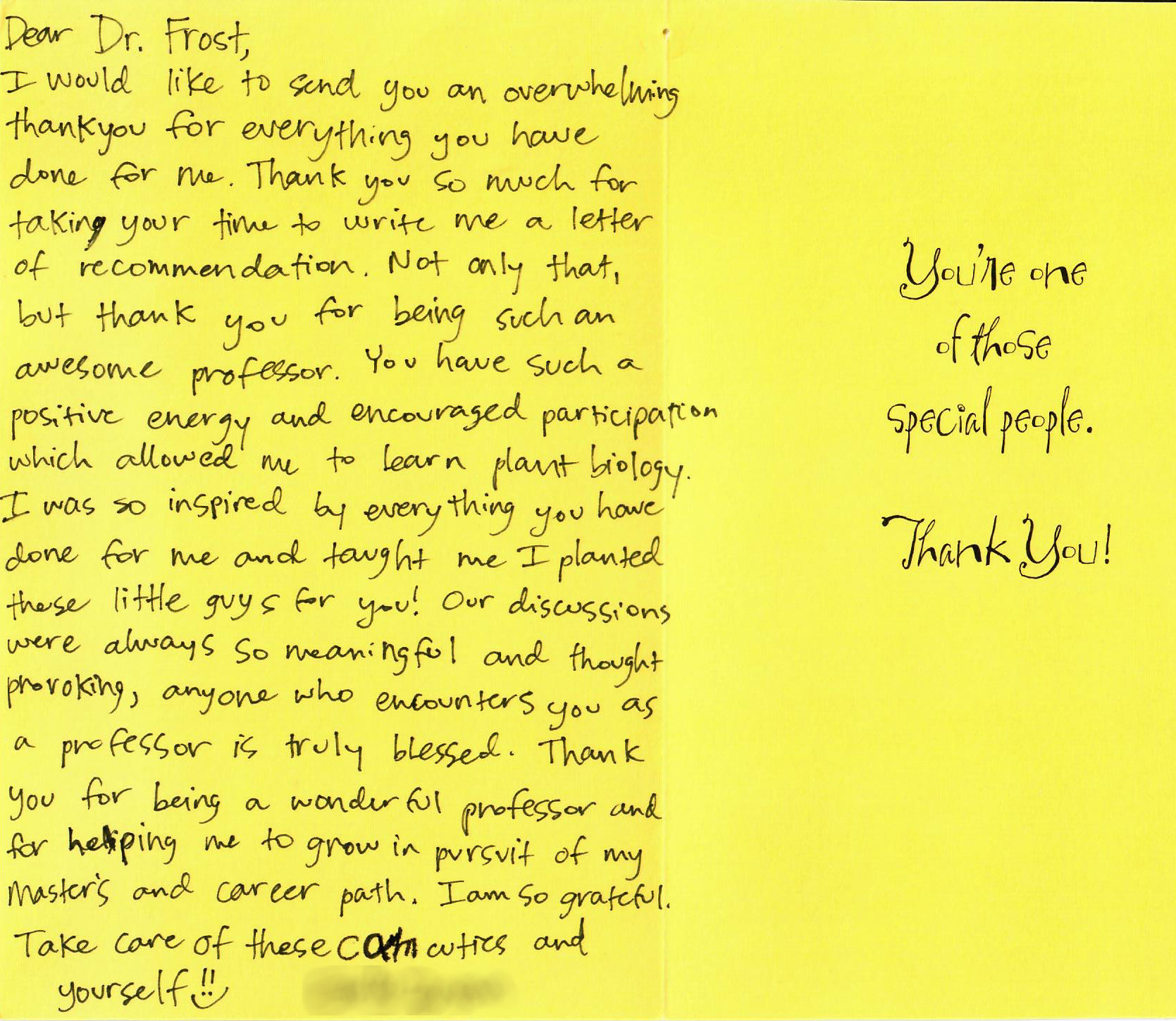The Frost Laboratory: Plant Integrative Biology and Chemical Ecology
Mission Statement
The Frost Lab mission is to generate novel, exciting, fundamental understanding of ecological interactions mediated through chemistry, explore how environmental variation affects those interactions, and apply our knowledge to improve the human condition.
Why is Our Mission Important?
In the struggle for life, all organisms interact with other organisms and their environment using the language of chemistry. Ecology is interested in the distribution and abundance of organisms, and such quantitative measures are influenced by the quality of the environment. Indeed, quality of life is important to humans and all other organisms alike. Quality in ecology is often ascribed by chemistry, and this "chemical ecology" is represented by a complex array of metabolites developed over the course of evolution of life on earth. We have a fundamental, innate desire to discover how the world around us operates, and chemical ecology is a cornerstone of this operation.
How Do We Accomplish Our Mission?
We must first be enthusiastic seekers of information. We then apply the scientific process in three central stages: idea/hypothesis generation, rigorous experimentation, results and communication. Each of these requires a detailed understanding of both historical and contemporary, cutting-edge literature. If we are good at these basic aspects of science, we will very likely be successful scientists using metrics that are imposed on us by others. Therefore, our goal is excellence in the process of doing science, and we approach this with unparalleled enthusiasm.
We also recognize that teamwork is essential for accomplishing our mission. We therefore hold core values as essential within our group: respect, trust, collaboration, and organization . These are the pillars on which the foundation of our success is based. Organization includes maintaining clean working areas in both personal and public areas in the lab, as well as keeping lab and field notebooks that are complete and easy to follow by others. We actively promote and maintain these values. Sharing ideas and current hypotheses allows us to build from each other and our collective expertise. We must all be active participants in laboratory activities, and realize that our constructive criticism and evaluation of each other makes us more effective scientists.
How Do We Measure Our Success?
We have an obligation to communicate our scientific discoveries to people who help pay for them: the public. The currency of our work is measured in five main communication media: manuscripts, grants, presentations, teaching, and outreach. It is important to emphasize that we strive for excellence in all five of our intellectual currencies regardless of how much relative importance others ascribe them.
Manuscripts report our science to the world. They are our main currency and how we document our productivity. They are also part of the permanent written history of our society, so we take them very seriously.
Grants are necessary to fund our work, and to get funds we need good ideas (and some grantspersonship).
Presentations allow us to disseminate our results in a less permanent manner than do manuscripts. Presentations can occur to scientific audiences and to the general public, who ultimately are responsible to funding our ability to make our scientific discoveries.
Teaching formalizes the transition of our knowledge from our scientific circle to a larger academic audience. This is reflected in course development and engaging learning activities.
Outreach comprises the both formal and informal activities that translate our discoveries to a broader audience.
Personally, I derive unquantifiable rewards from teaching and outreach. Note that one does not need to be an exceptional teacher to secure funding and publish great research, or vice versa. But, our goal in this lab is to find the sparks within us that inspire us to achieve greatness in all of our outputs.
Standing on the Shoulders of Giants
Our Lab Mission Statement is a document that represents the ideals of the lab group. All members of the lab group have input, and we discuss and revise at least twice per year. The idea of the mission statement was not mine, Mark Hunter started a lab mission statement about half way through my PhD in his lab at UGA, and I really liked the idea as a guiding principle for the lab. This is my best effort to model Mark's idea, and now it has been through a few rounds of discussion and revisions with my lab group.



